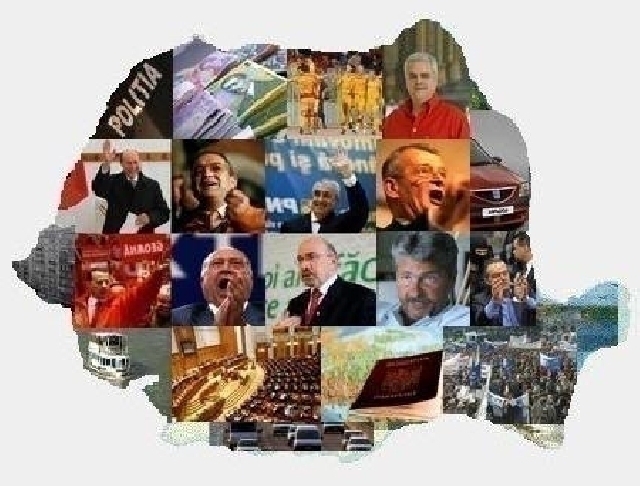The Week in Review 13-19.01.2013
We bring you an overview of the headline-grabbing events in Romania this past week.

Corina Cristea, 18.01.2013, 16:53
A joint mission of the IMF, EU and World Bank is in Bucharest for a new assessment.
Experts from the IMF, the European Union and the World Bank are in Bucharest until January the 29th, for a new assessment of the precautionary stand-by agreement with Romania worth around 5 billion Euros and signed in the spring of 2011. This is the international lenders’ first visit to Romania after the parliamentary election in December, which brought to power a center-left government headed by Victor Ponta. High on the agenda of talks will be the recent developments in the Romanian economy, the draft budget for 2013, the monetary policies promoted by the National Bank of Romania and the extent to which the Romanian banking sector is prepared to cope with prospective external shocks. Negotiations will very likely be difficult, considering that there are delays in the privatization of large state-owned companies, in making public healthcare spending more efficient and in the payment of arrears. Romanian authorities seek to obtain a several months extension of the deadlines for these commitments taken as part of the agreement. The government will discuss with the international lenders about the appropriateness and impact of a number of measures that the Cabinet has announced, such as increasing the minimum wages from 155 to 177 euros or reducing the VAT on basic foodstuffs.
World Bank officials issue recommendations to Romania.
Romania must carry on structural reforms and not rush the adoption of the European currency, until it achieves real convergence with the European economies. This recommendation was made by the World Bank country manager for Romania, Francois Rantrua, during an economic conference in Bucharest. He said the World Bank acknowledged the good results Romania has recently obtained in terms of reducing the budget deficit, keeping inflation in check and a slight increase in exports, but warned that the prerequisite for economic growth is investment, particularly in transportation and energy. Other challenges facing Romania are rebalancing the social security budget, reforming the public healthcare sector, making the operation of state-owned companies more efficient, improving the collection of revenues to the state budget and increasing the EU fund absorption rate.
Talks are held on the funding of Romania’s public healthcare system.
Reforming the Romanian healthcare system is a priority for the current government, as it was for the previous cabinets. Proof in this respect is that the 2013 state budget bill stipulates a 30% increase in funds for this sector. Healthcare minister Eugen Nicolaescu has announced a series of measures, such as termination of public funding for private hospitals and reassigning the management and financing of county hospitals, from local authorities to the central ones. After hospital officials and patients alike expressed dissatisfaction with these measures, the minister made a number of clarifications. He has announced talks will be launched next week between ministry officials and private hospital managers, and a decision on the financing of private hospitals will only be taken after the government has approved the framework-contract for 2013. Nicolaescu has added that no decision has been taken yet as regards the medical staff employed both in public and private healthcare units, after the Ministry had previously announced that such cases should be checked for conflicts of interests.
Romania responds to the crisis in Mali and the hostage situation in Algeria.
The international community is facing a new crisis, in Mali, where operations by terrorist groups have strengthened. The crisis threatens to spiral and to jeopardize the stability of that west-African region. An emergency meeting focusing on this situation was held in Brussels, where the EU foreign ministers approved a mission to organize and train the Mali army. The mission will be made up of 200 military trainers and 250 security agents, and will span 15 months. The Romanian foreign minister Titus Corlatean said Romania might take part in the mission. He has firmly condemned the actions of the terrorist groups in Mali and addressed a message of support for France’s decision to resort to a military intervention to restore order to that country. Meanwhile, Bucharest has confirmed that Romania is one of the countries with citizens held hostage in Algeria by an Al-Qaida affiliated group, in retaliation for the French military intervention against Islamist violence in Mali. The Romanian Foreign Ministry has announced a task force has been set up to handle the situation.



























